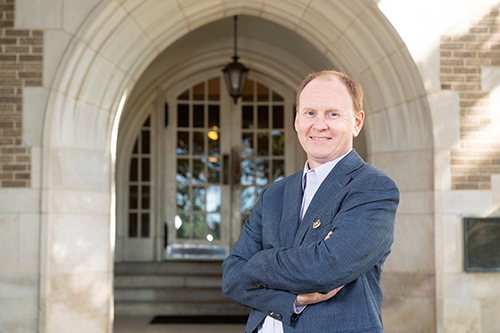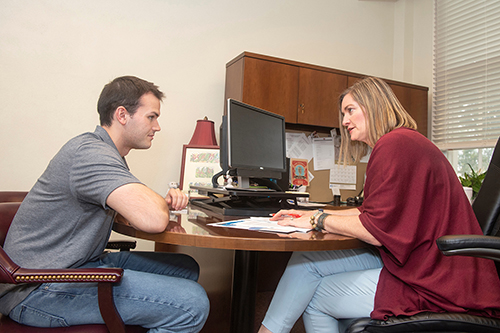MSU students can earn two degrees, help alleviate medical technology shortage through new partnership
Contact: Sarah Nicholas

STARKVILLE, Miss.—A new memorandum of understanding between Mississippi State University and the University of Arkansas for Medical Sciences allows students to earn an MSU bachelor’s degree in medical technology and also a UAMS bachelor’s degree in medical laboratory sciences.
The program equips graduates for careers as medical technologists, an in-demand profession experiencing shortage levels according to statistics for 2019 worker volume from the U.S. Bureau of Labor.

The dual degree program begins in the fall of 2020.
MSU medical technology students spend their last year of undergraduate studies completing an internship off campus at UAMS and then complete one extra semester at an Arkansas hospital to complete requirements for the additional bachelor’s degree.
Medical technologists are instrumental in conducting tests to determine if people have illnesses, such as COVID-19. Dawe said that although the coronavirus is prominent in the news, “urgent diagnoses for other diseases is still required and the numbers of skilled personnel available to perform those tests is limited.”
“We are proud that our program can help with training the next generation of individuals who can help fight these problems in the near future and in years to come,” Dawe said.
“We are always looking for ways to make the best and most diverse opportunities available to our students,” he added. “This dual degree program really leverages the best of both institutions to provide students with comprehensive training in a very important, much needed area.”
Mary Celeste Reese, director of MSU’s Dr. A. Randle and Marilyn W. White Health Professions Resource Center, said an appealing factor for students is the chance to earn two bachelor’s degrees which increases their marketability and provides more internship opportunities.
“This MOU is similar to MSU’s other affiliation agreements in which medical technology students, in their last year, complete an internship at an affiliated hospital. Following a full year of didactic and laboratory training at the hospital, course credit is transferred back to MSU and students are awarded a bachelor of science in medical technology from MSU,” Reese said.
Reese said MSU students currently have a 100% pass rate on the Medical Laboratory Scientist Certification exam.
As part of MSU’s College of Arts and Sciences, the Department of Biological Sciences is online at www.biology.msstate.edu. The College of Arts and Sciences includes more than 5,200 students, 325 full-time faculty members, nine doctoral programs, 14 masters programs, and 27 undergraduate academic majors offered in 14 departments. It also is home to the most diverse units for research and scholarly activities, including natural and physical sciences, social and behavioral sciences, and the humanities. For more about the College of Arts and Sciences visit www.cas.msstate.edu.
To learn more about the new dual degree program, contact Reese at mcreese@prehealth.msstate.edu.
MSU is Mississippi’s leading university, available online at www.msstate.edu.